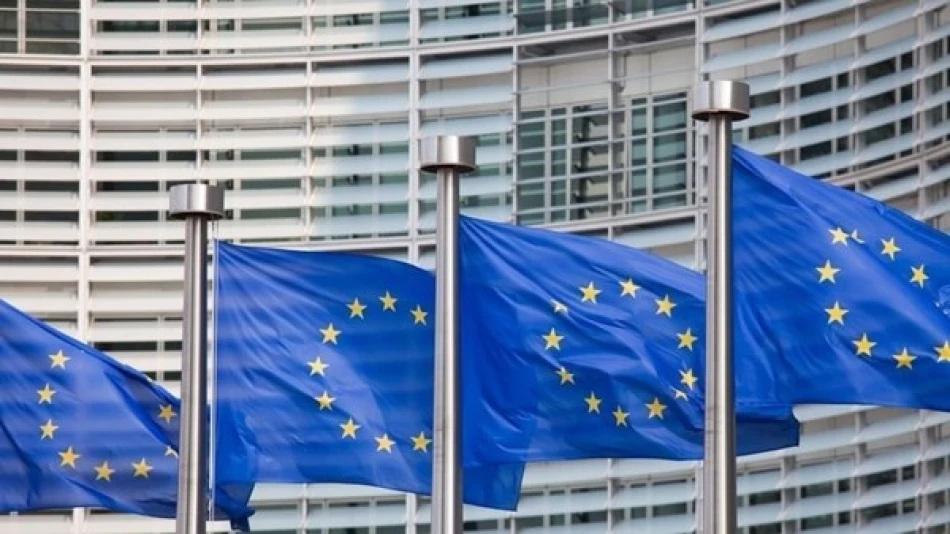
EU Parliament Adopts Groundbreaking Food Waste Reduction Law
Europe Takes Aim at Food Waste and Fast Fashion with Binding 2030 Targets
The European Parliament has approved sweeping legislation requiring EU member states to slash food waste by 30% and tackle textile waste from fast fashion by 2030. The law marks Europe's most ambitious regulatory response yet to overconsumption, targeting both household food waste and the flood of cheap clothing imports that have transformed European shopping habits over the past decade.
The Scale of Europe's Waste Crisis
The numbers paint a stark picture of European consumption patterns. Each European generates an average of 130 kilograms of food waste annually—equivalent to roughly 350 meals per person thrown away each year. Meanwhile, textile waste has surged to 15 kilograms per person, driven largely by the fast fashion boom that has made clothing increasingly disposable.
What makes textile waste particularly problematic is the near-complete absence of recycling infrastructure. Unlike food waste, which can be composted or converted to energy, discarded clothing typically ends up in landfills or incinerators, representing a massive loss of resources and embedded carbon.
Binding Targets Signal Regulatory Shift
The legislation sets mandatory reduction targets that represent a significant escalation from voluntary guidelines. By 2030, member states must achieve a 30% reduction in food waste from retail, restaurants, and households, plus a 10% cut in waste from food processing and manufacturing, measured against 2021-2023 baselines.
These targets emerged from political compromise. European Parliament members initially pushed for more aggressive goals—40% and 20% respectively—but negotiations with the European Commission and all 27 member states resulted in the current framework. The hospitality industry lobbied hard against binding targets, preferring education and guidance over regulatory mandates.
Fast Fashion in the Crosshairs
While the law doesn't specify detailed enforcement mechanisms, its explicit reference to Chinese clothing imports signals growing European concern about ultra-cheap fashion's environmental impact. Companies like Shein and Temu have revolutionized European shopping by offering clothing at prices that make garments effectively disposable, fundamentally altering consumer behavior.
This regulatory approach mirrors broader European strategy on digital platforms and data privacy—using market access as leverage to impose global standards. Just as GDPR influenced worldwide data practices, Europe's waste reduction mandates could pressure international suppliers to redesign their business models.
Economic and Market Implications
The legislation creates both challenges and opportunities across multiple sectors. Food retailers and restaurants face operational changes and potential compliance costs, but also incentives to innovate in inventory management and portion control. The textile industry confronts pressure to develop circular business models, potentially accelerating investment in clothing rental, repair services, and recycling technologies.
For investors, the law signals growing regulatory momentum behind the circular economy. Companies developing food waste reduction technologies, textile recycling processes, or sustainable fashion alternatives may find expanded European market opportunities as compliance deadlines approach.
Global Context and Precedent
Europe's approach contrasts sharply with other major economies. While countries like South Korea have implemented comprehensive food waste reduction programs, and some U.S. states have banned organic waste from landfills, few jurisdictions have combined binding waste targets with explicit focus on fast fashion imports.
The timing reflects Europe's broader effort to maintain regulatory leadership on environmental issues while addressing public concern about overconsumption. As climate commitments intensify and resource scarcity grows, waste reduction offers politically palatable progress that doesn't require immediate lifestyle sacrifices from voters.
The law's success will largely depend on implementation details still to be developed by individual member states. However, by establishing binding targets rather than voluntary goals, Europe has signaled that waste reduction is moving from aspiration to legal requirement—a shift that could reshape both European consumption patterns and global supply chains serving European markets.
Most Viewed News

 Layla Al Mansoori
Layla Al Mansoori






